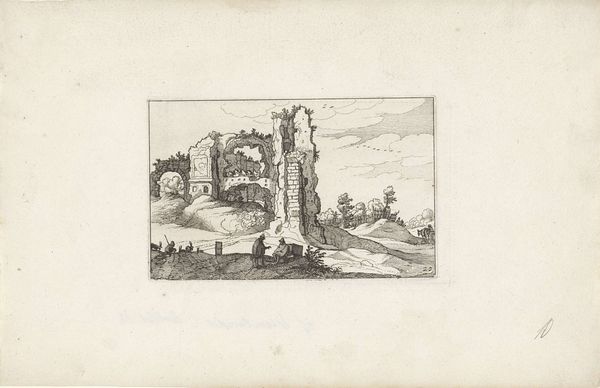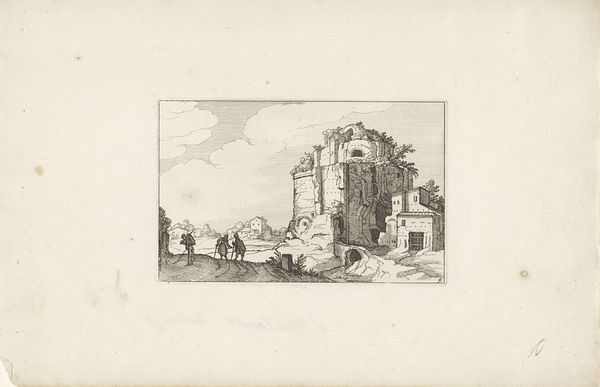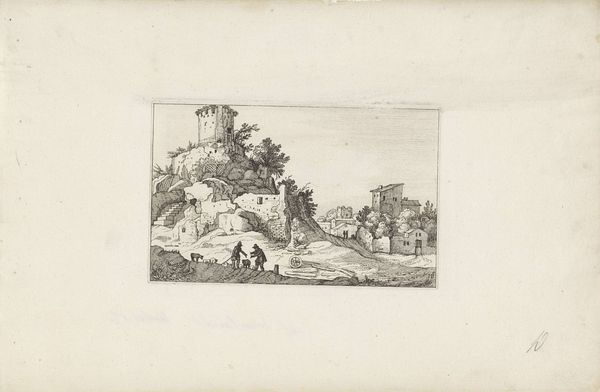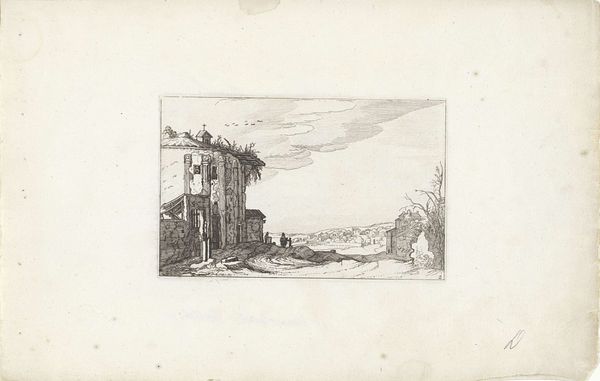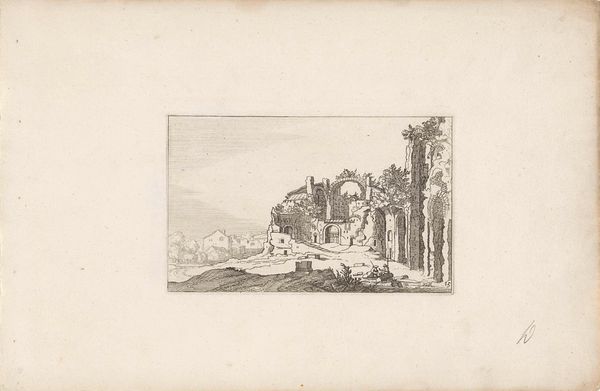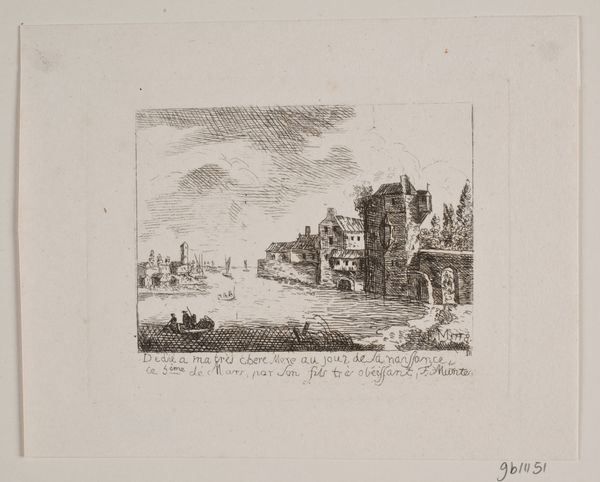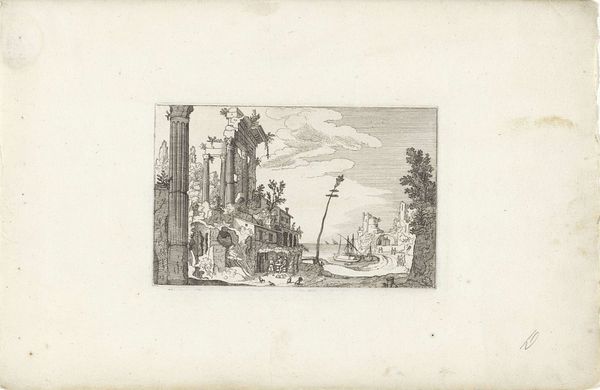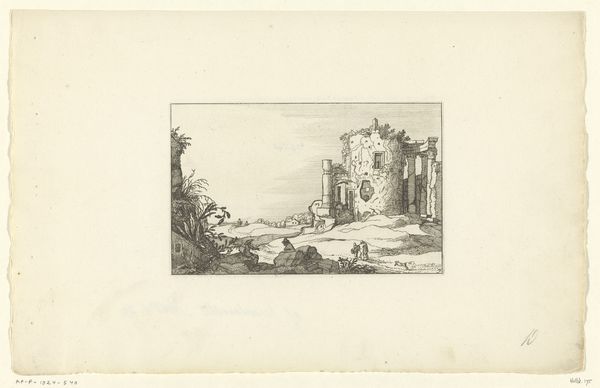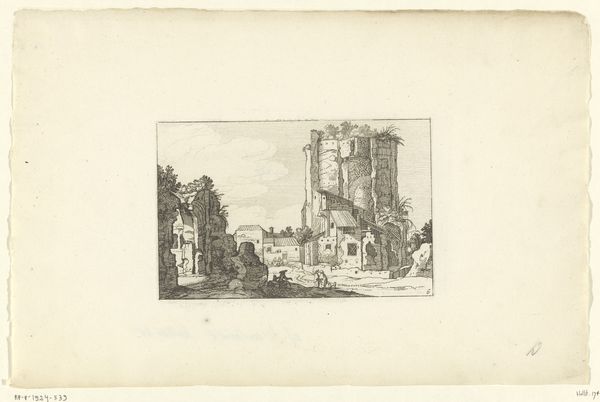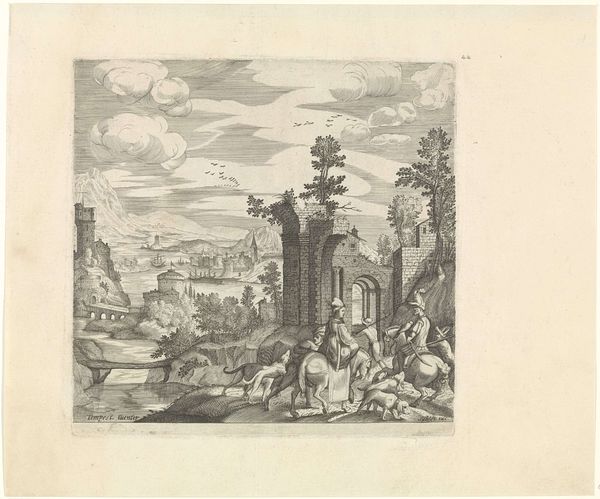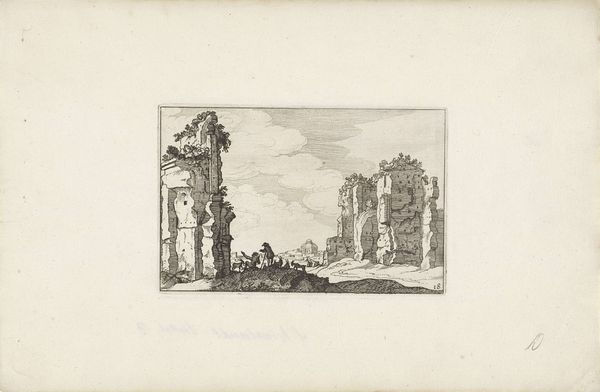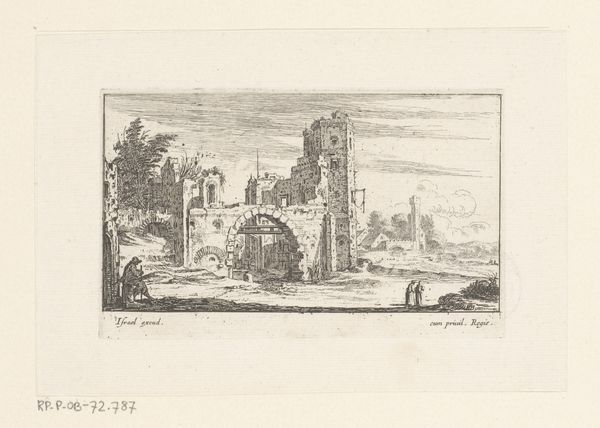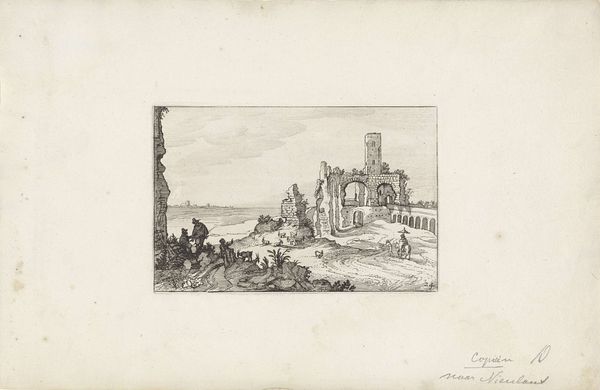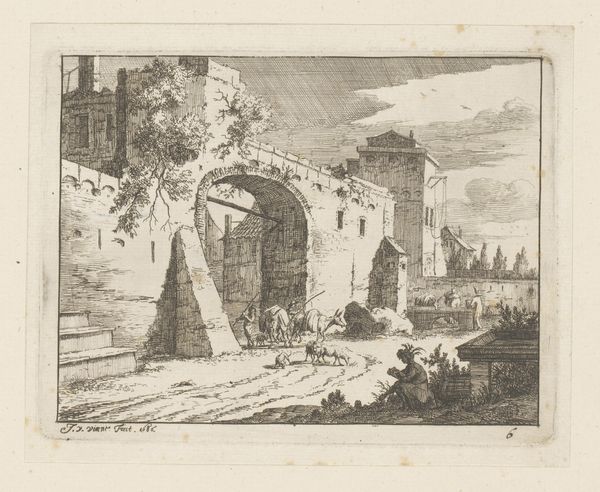
drawing, ink, engraving
#
drawing
#
baroque
#
old engraving style
#
landscape
#
ink
#
pen-ink sketch
#
genre-painting
#
engraving
Dimensions: height 99 mm, width 157 mm
Copyright: Rijks Museum: Open Domain
Editor: Here we have Claes Jansz. Visscher's "Travelers at an Inn," created in 1618 using ink and engraving. It feels like a scene from a fable, somewhat surreal with its mix of architectural ruins and everyday life. What do you see in this piece, especially in terms of its context? Curator: What I see here is not just a simple landscape, but a reflection of the socio-political climate of the Dutch Golden Age. The inn, the travelers, the ruins – they're all symbols. Consider the inn as a space of temporary refuge, a place for social interaction but also potential conflict. How might that reflect the dynamics of a society grappling with rapid urbanization and shifting social hierarchies? Editor: So, you're suggesting the artwork comments on social stratification and maybe the uncertainties of travel at that time? Curator: Precisely. The travelers represent various social classes thrown together. Look at the ruined buildings; they remind us of the past and failed empires but could also speak to the fleeting nature of earthly power. The landscape, therefore, is not just a backdrop but a stage where societal tensions play out. The "genre painting" thematics are intertwined with class issues. What might the choice of ink as a medium communicate? Editor: Perhaps its accessibility means the image could reach a wider audience, spreading social commentary further than oil paintings only for the wealthy. Curator: Exactly! The engraving, then, is not just a technique but a conscious choice to engage in a dialogue about accessibility and democratizing art in a changing world. Editor: This reframes my initial perception. It’s no longer a quaint scene, but a commentary on societal dynamics and accessibility through art. Thank you. Curator: My pleasure! Recognizing art's power as a vehicle for these conversations is key.
Comments
No comments
Be the first to comment and join the conversation on the ultimate creative platform.
